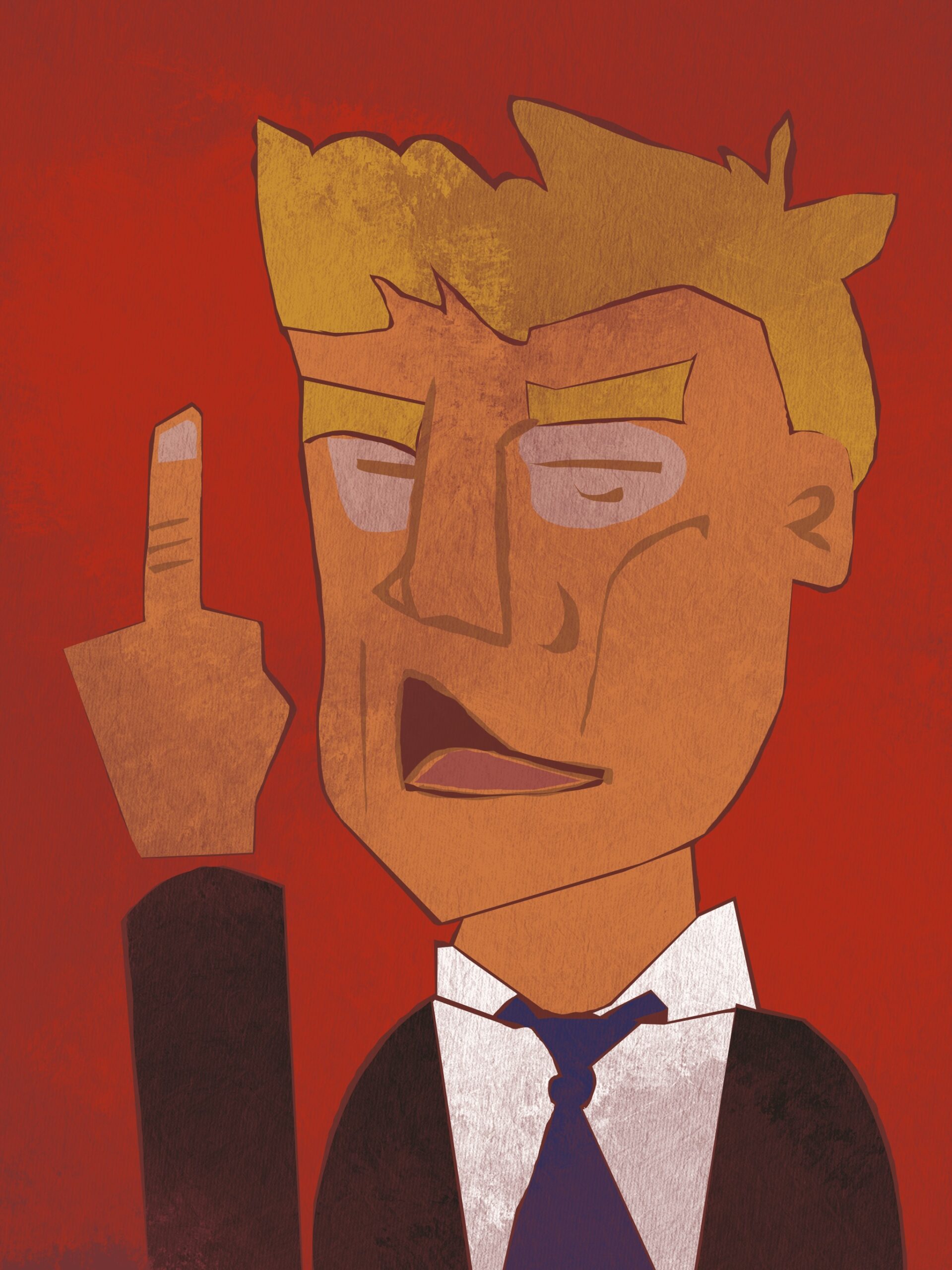A lot of things are going on right now. Tariffs constructed by opaque methodologies have been imposed and revoked. A news organization was banned from the White House because it did not rename the Gulf of Mexico the Gulf of America in its reporting. Private law firms are facing the full force of the executive branch for entirely legal actions they took in the past. Universities have faced research funding cuts allegedly because of antisemitism but more precisely because they are centers of critical thought and free speech.
At Princeton, we are shielded from a lot of this, but not all of it, and the fact that we feel anything through a 30 billion dollar endowment is proof of the gravity of these events. Each successive unprecedented direct action has vastly wider and scarier indirect ramifications as the country scrambles to get behind a line without even knowing where it is. Without explicit intervention, Walmart has fired a trans employee. A principal asked a teacher to take down “everyone is welcome here” signs. Researchers are stripping their grant proposals of words like “women” and “equity”.
Trump is using the full weight of the United States — its military, federal bureaucracy, and principally its economy — to punish expressions of free speech that he does not agree with. In doing so, he poses an existential threat to the very economy he is levering by throwing out what made it great: trust.
Until Trump, US businesses and universities attracted many of the smartest minds in the world and our robust and historically stable financial markers attracted bountiful monetary capital resources. The dollar was the world reserve currency, meaning US debt was always liquid (immediately buyable and sellable) and always in demand. This cocktail of capital was perfect for the incubation of startups: Entrepreneurs or existing companies wanting to expand to new activities could access the human and monetary capital they needed to realize their ideas. Many would fail, but some would succeed, in theory by creating new efficiencies. Because US institutions, markets, and financial infrastructure were trusted, fewer startups were burdened by a need to be profitable. This led to a lot of bad startups, but also a few good ones, and the good ones stuck around. This slacking of constraints increasing the realm of possible activities for new businesses and increased churn.
The word “startup” can have certain connotations, as can “US economy,” but I want to emphasize that this dynamic of trusting newcomers to do something new and challenge complacent companies — churn — is objectively valuable. It can be compared to the ideal of the undergraduate student model, where students are taught to think critically and are afforded the opportunity to do so because their parents or institution or they themselves trust in the idea of their future production function enough to supply it with credit and let it run at a loss for a few years. Students don’t have to be economically productive in school with what they’re learning, giving them the space to learn about broader and less obviously useful topics. While in the workforce they may be subservient to a boss and their work will be more narrowly contained to the realm of making money for the company, students are charged with examining the status quo and then asking what could be changed to make it better. This is the platonic idea of research and critical essays.
In a world where trust is harder to come by and fewer companies (or students) are afforded this opportunity, it will be harder to engage with new ideas and slower to dislodge the status quo. If fewer students can access the trust to get enough credit for the education they belive in, more will feel constricted to major in whatever promises the highest future salary. Society loses something from that.
Briefly, I also want to add that the US economy being good is important. A theoretical alternative world order that has no single nation at its center might be a better equilibrium outcome. But it is unclear and uncertain how we would get there and if we, given the present conditions, could. Europe is dealing with its own far-right movements and war, and other potential leaders like the People’s Republic of China are, if not worse than the admittedly often aggressive US, at least not obviously better for anyone who values Western ideals of free speech and liberal thought.
To conclude, during Trump, once bountiful trust in the US economy is being replaced with fear, and the once-enviable dynamism of our economy is being threatened. For one more illustrative example, international students have been detained by ICE for attending peaceful protests. Therefore, other international students no longer feel safe attending peaceful protests. Free speech was practiced, punished, and is now practiced by fewer people and with less security.
If the undergraduate model is valuable, then so are the best parts of US capitalism because they engender a culture of criticism. Both require trust. Without it, the benefactors of today’s system will face fewer challenges from the bottom and stay in power for longer than is their due. Therefore, for the economy, threats to trust are not simply bad but rather existential.

Leave a Reply